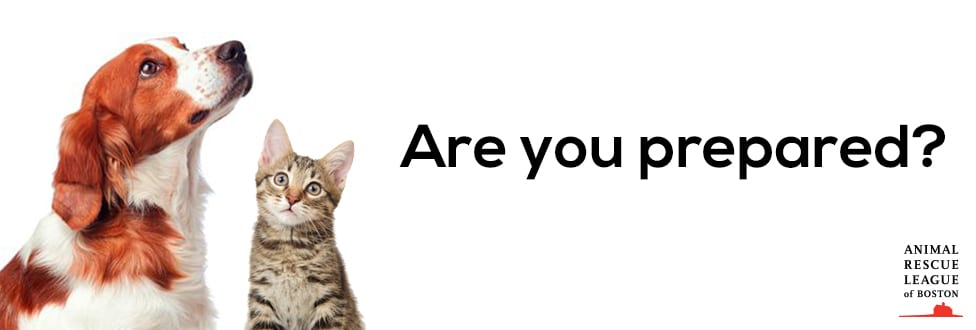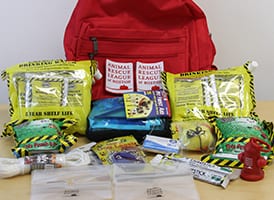ARL Partners with New England Center and Home for Veterans
ARL to offer variety of services, including temporary pet housing
The Animal Rescue League of Boston (ARL) is proud to announce a new partnership with the New England Center and Home for Veterans (NECHV), in an effort to further serve Veterans who may be facing housing instability or other challenges.
ARL is currently offering its Temporary Pet Housing Initiative to NECHV clients, to ensure Veterans are getting the help they need, avoiding pet surrender, and keeping pets and people together. To date, ARL has already assisted several animals who have since been reunited with their owners.
“ARL is honored for the opportunity to partner with the New England Center and Home for Veterans by offering temporary pet housing to former service men and women who are in the midst of transitioning to permanent housing,” stated ARL President and CEO Dr. Edward Schettino. “To be able to temporarily care for and then reunite these animals with their families is a special responsibility, and ARL is proud to play a role in keeping pets out of shelters and in homes with the people who love them.”
“The New England Center and Home for Veterans is pleased to offer the services of the Animal Rescue League of Boston’s Temporary Pet Housing Initiative to the Veterans we serve,” said NECHV President and CEO C. Andrew McCawley. “Pets are like family, and the thought of having to give them up can contribute to the disruptiveness of homelessness. Through this partnership, Veteran pet owners who are experiencing housing instability can have peace of mind, knowing that their pets will be well cared for until they can be reunited with them.”
ARL’s Temporary Pet Housing Initiative allows pets to stay within ARL’s vast foster care network, relieving the pet owner of having to make any difficult pet-related decisions while allowing them to focus on bettering their own situation.
As the partnership grows, ARL aims to provide further services to Veterans and their pets including pet wellness, spay/neuter, among others.
ABOUT THE NEW ENGLAND CENTER AND HOME FOR VETERANS
Founded in 1989, the New England Center and Home for Veterans is a nationally recognized leader in serving Veterans. The NECHV is a multi-dimensional service and care provider that assists Veterans who are facing challenges with a broad array of programs and services that enable success, meaningful employment, and dignified, independent living.
*To protect the privacy of veterans in this program, the photos used in this blog are not participants of the program.







